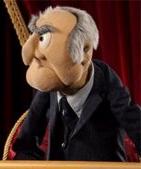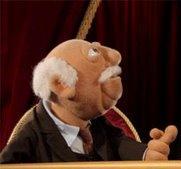Today is the seventieth anniversary of the
Abdication of
Edward VIII (unless you're in the Republic of Ireland, where it's tomorrow!). It was just the latest in a long line of actions that have shown that the monarchy can be flexible and overcome particularly problematic individuals that dates back to at least King Stephen and also includes King John, Henry IV, Henry VII, William III and Mary II and George I. The monarchy rapidly recovered (not least because of George VI's stand during the war) and it's only recently that the issues of the Abdication have become relevant once more.
It's often said that one of the basic points of a monarchy is that there is no choice whatsoever about the succession. But this overlooks a vast amount of precedent of both individuals and lines being passed over. Were one to follow a notion of strict male preference primogentiure then our current monarch would not be Elizabeth II but
Francis II. Time and again a way has been found around a problematic individual, allowing the system on monarchy to survive.
Contrast this with France in the nineteenth century, where it wound up with a restoration putting on the throne die hards like Charles X. A
legitimist succession to the
Orleanist line (and ignore the
Carlist line, as most legitimists did) before 1830 may have given the monarchy the stability and broader support it needed to survive, but ultimately the monarchists wound up supporting
Henri, comte de Chambord, who made impossible conditions for taking the throne and ultimately wound up being the one man who made a France a permanent republic.
I rather doubt that Prince Charles will wind up being the UK's come de Chambord. But it's hard to deny that his accession is creating uncertainty. His marriage to Camilla is exactly what his great uncle was officially forced to give up the throne for (and wasn't "Duchess of Cornwall" precisely the title proposed for a non-Queen Wallis?). Now social attitudes have changed a lot in seventy years but the prospect of a Head of the Church of England being married to a divorcee is one that many find hard to accept. Traditionally the monarchy and the Established Church have reinforced one another. Could we see one bring the other down? And which?
Then there's the issue of public popularity. Whilst the newspapers seem to have restrained themselves in recent years in reporting the "Royal Soap Opera" (give or take the
Daily Express obsession with Diana) the media does still retain the ability to break a public figure's credibility. Charles has fought a long battle for media, and thus public, approval and in many ways its not over yet. Can he successfully reign if he's constantly having to work like a politician to maintain popularity, in a job that is defined as not open to politicians?
But equally a lot of this would apply to William (although he also has to navigate the problems that the title "King William" will bring). A public debate and choice of "Charles or William" amounts to a limited choice republic and it would be hard to resist the logical consequence. Will the monarchy be able to weather a second storm? And what will happen to the Church of England?
 It really hasn't been the Liberal Democrats' year, has it? They started by brutally stabbing their leader in the chest, have had so many scandals surrounding leading figures that I've lost count and have since staggered about under their new leader, with many openly questioning whether they made the right choice and invariable speculation about a Kennedy restoration, whilst the party tries to find a direction and only gets the occasional good cheer from nasty, vicious, hypocritical local campaigning that had even some of their own ashamed of their campaign.
It really hasn't been the Liberal Democrats' year, has it? They started by brutally stabbing their leader in the chest, have had so many scandals surrounding leading figures that I've lost count and have since staggered about under their new leader, with many openly questioning whether they made the right choice and invariable speculation about a Kennedy restoration, whilst the party tries to find a direction and only gets the occasional good cheer from nasty, vicious, hypocritical local campaigning that had even some of their own ashamed of their campaign. Now comes the news that three of their candidates from the last general election have joined the Conservatives. (BBC News: Lib Dem trio become Conservatives) Now the Lib Dems will try to write these three off as insignificant individuals. But amongst them is Richard Porter, who authored the Lib Dems' 2005 manifesto for the LGBT community. So do the Lib Dems consider LGBT issues to be insignificant or are they lying?
Now comes the news that three of their candidates from the last general election have joined the Conservatives. (BBC News: Lib Dem trio become Conservatives) Now the Lib Dems will try to write these three off as insignificant individuals. But amongst them is Richard Porter, who authored the Lib Dems' 2005 manifesto for the LGBT community. So do the Lib Dems consider LGBT issues to be insignificant or are they lying? The comments by the three no doubt say a lot for many still within the Liberal Democrats:
The comments by the three no doubt say a lot for many still within the Liberal Democrats:





